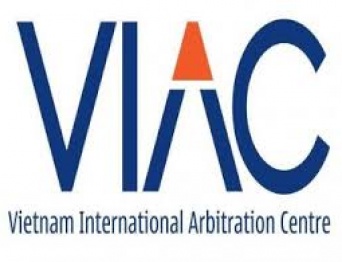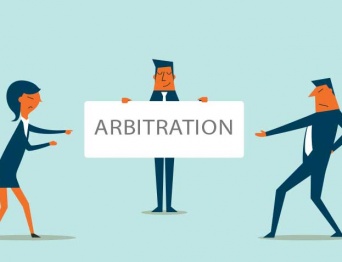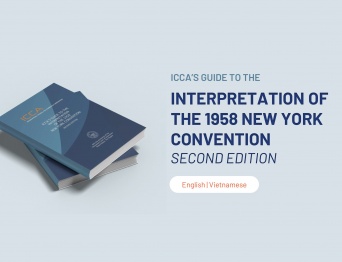 | Ngo Khac Le VIAC Arbitrator |
Goods can be consolidated, batched, packed, sorted, and grouped for a certain period of time before being loaded onto a trailer for carriage to the consignee. Disputes about whether the time to do these things are within the scope of insurance liability or not is an issue worth knowing (through the lawsuit with the documents of a foreign law firm) below for readers’ reference.
Facts
A Danish tobacco wholesaler took out a cargo insurance policy with the assistance of an insurance broker that included "tobacco transport" with an insurance sum of Dkr20 million. The policy was issued on Danish Extended Conditions (UDB, which are based on and similar to the Institute Cargo Clauses (A) conditions) with a Scandinavian insurer. Under Section 7 of the UDB, insurance cover commences when the "insured item is lifted or moved into building or storage at the point of departure and this is done in direct connection with the loading onto or into the means of transport used to immediately commence the transport". The policy included the following individual terms: "The insurance is extended to cover the insured goods whilst kept in the policyholders/insured's vehicles/trailers for up to 3 days when they are left in connection with the transport to and from the policyholder/insured". Further, the insurance broker's terms, which applied to the insurance contract, included the following condition: Special insurance terms – Article 2.7. consolidation. The insurance is extended to cover insured goods which are temporarily stopped in the ordinary course of transport for the purpose of carrying out export packaging, consolidation in containers or trailers and discharge from these as well as similar consolidation stays when the stay does not exceed 30 days.
The Danish tobacco wholesaler had signed a transport agreement with a Danish carrier. The cooperation between the wholesaler and carrier was organised to the effect that on Fridays, the wholesaler delivered tobacco products loaded on pallets for transport at its terminal, where the carrier loaded the pallets onto its trailers for transport to the wholesaler's customers. After being loaded, the trailers in question were driven to the wholesaler's terminal area for consolidation. This included the carrier checking that the correct items had been loaded onto the trailers. It had not been agreed between the parties that this check should be carried out at the wholesaler's terminal, but it was done there in practice. The distribution took place so that the trailer could be transported for delivery to customers on Sundays. While the trailer in question was sitting in the wholesaler's terminal, $1,176,768.19 of tobacco products were stolen from it. The wholesaler notified the insurer of the damage but was refused coverage on the grounds that coverage commenced only as stated under Section 7 of the UDB and that the transport at the time of the loss had not 'commenced', as under the policy this term should be understood to mean that the trailers had been loaded on a Friday, while the transport to the consignees first 'commenced' on a Sunday. The wholesaler submitted that Section 7 of the UDB could not be considered to apply, as the UDB conditions had not been met and the individual terms of the policy should be interpreted to the effect that the loss was covered.
Decision
The Maritime and Commercial Court found that the loss was not covered under the cargo policy and that the insurer was [not] liable (Maritime and Commercial Court judgment, Case BS-14768/2018-SHR by Jesper Windahl at WSCO Advokatpartnerselskab website www.wsco.dk). The court held that the UDB should be considered to apply and that insurance coverage pursuant to Section 7 had not commenced at the time of the loss. The court stated as follows: According to section 7 of the Danish Extended Conditions 2010, insurance coverage commences when the insured item goods are lifted or moved in connection with being loaded on the means of transport in order to immediately commence transport. Transport must thus commence in the immediate timely extension of the loading. The tobacco products were packed and loaded onto the trailers Friday for transport to the consignees on Sunday. In these circumstances, and since the transfer of the loaded trailer from terminal KP5 to terminal KP7 within the Wholesaler's own terminal does not mean that the transport can be regarded as commenced under section 7, the court does not find that the transport had commenced when the theft took place, and the insurance was therefore not in effect at the time of the theft... [Because] the carriage had not commenced when the theft occurred, the clause in section 2.7 of the insurance terms on consolidation does not apply.
Comment
It is clear from the judgment that cargo insurance coverage under the UDB requires that the transport of insured goods commences immediately after loading onto the means of transport has taken place. Whether the goods were considered to be in the carrier's custody when a loss occurred is irrelevant. This must be considered to be consistent with established and recognised insurance practice in the Danish market. However, the insurance policy in question also included a special extension of coverage, which provided coverage for goods up to three days in connection with transport from the policyholder. Thus, since an extension of the standard coverage provided by the UDB had been agreed, it could be submitted that the extended coverage did not require that insurance under the UDB had commenced, but rather that the extended coverage could include damage not covered under the UDB. The judgment demonstrates that individual terms and conditions that aim to extend coverage under a cargo insurance policy in relation to the coverage as specified in the UDB must be carefully and explicitly drafted in order to be given effect.
(*) This research paper only reflects the opinions of the independent expert and does not relate to or represent the opinions of VIAC or any organizations.

Arbitration, and typically commercial arbitration, is an Alternative Dispute Resolution (ADR) which is agreed by parties of the dispute. Arbitration can be used to replace the traditional way of litigation in court.

Derive from arbitration’s dispute settlement principles, arbitration shows many pros and brings many benefits for parties in commercial dispute, specifically as follows:






A Polish appeals court vacated an International Chamber of Commerce (ICC) partial award for alleged irregularities in the arbitrator's appointment (for further details please see " ICC award set aside due to irregularities in arbitrator's appointment "). The sole arbitrator's final award was also successfully challenged and set aside. The first reason to vacate the final award was also the issue of the sole arbitrator's appointment.

It is normal to inspect the goods that have been lost or damaged during the performance of the sales contract and in the contract of carriage. However, improper inspection can lead to significant disputes and damages that you can refer to below.

The ten years of Law on Commercial Arbitration 2010 (LCA) are also the 10-year development period of VIAC - the first institutional arbitration organization in Vietnam, the organization that goes along with the formation and advancement of the legal framework of commercial arbitration in Vietnam.

Law on Commercial Arbitration (“LCA”) enacted in 2010 was considered a major step forward for the development of commercial arbitration in Vietnam. Compared with the previous years and with international standards, LCA has made remarkable progress, namely recognizing enterprises’ freedom of choice, broadening the scope of arbitration, raising the arbitral tribunal’s authority, valuing court assistance (especially interim measures enforcement), encouraging flexibility in language of arbitration, and improving party’s autonomy in arbitration while maintaining proper manners during arbitral proceedings.

Mr. Doug Jones, a leading arbitrator in the international arbitration community, revealed to me his infatuation with the beautiful beach and Vietnamese delicacies after a seminar in Da Nang. He was also inspired by the confidence, assertiveness, competence and the ambition to improve domestic arbitrators to the same level as those working in the international sphere of young arbitrators and VIAC Secretaries.

Law on Commercial Arbitration 2010 (LCA)- the procedural law governing arbitration proceedings whose seat is in Vietnam

Nowadays, as the digital economy emerges, electronic agreements on online websites are becoming more and more prevalent; hence, the legal effect of establishing terms and conditions of service when accessing the website (browse-wrap) and clicking (click-wrap) are of particular interest. The following paper analyzes some of the legal aspects of online agreement conclusion, especially the establishment of the arbitration agreement by means of browse-wrap and click-wrap.

Whether settling disputes in Court or through arbitration, when a party has the burden of proof, it must submit evidence to the arbitral tribunal. The evidence can be in many different forms: Document electronic evidence, audio recordings, video recordings, witness statement, etc. In international arbitration practice, especially in complex disputes, a type of evidence that is frequently used by the parties to defend their opinion/request is testimony/report of "expert witness".

In international commerce and investment, parties to a dispute often select arbitration as an alternative dispute resolution other than litigation in which the court, an authorized state agency, adjudicate disputes. An explanation for this phenomenon is that arbitration may be the optimal means that the parties can exercise their autonomy in writing to select one or several individuals who are not representing state agencies and state power (the so-called private parties) to resolve disputes. However, to prevent the possibility of arbitrators "privatizing" justice, [1] the New York Convention and the ICSID Convention set out the rules for annulment of arbitral award when such award violates arbitral proceeding. Here, questions arise. What rules of procedure are violated? And to what extent is the commercial and investment arbitral award annulled? This article seeks to elucidate the theory and practice of annulment for violations of procedure under the New York Convention and the ICSID Convention.

Goods can be consolidated, batched, packed, sorted, and grouped for a certain period of time before being loaded onto a trailer for carriage to the consignee. Disputes about whether the time to do these things are within the scope of insurance liability or not is an issue worth knowing (through the lawsuit with the documents of a foreign law firm) below for readers’ reference.

Mr. Vu Anh Duong is the Secretary General of the Vietnam International Arbitration Centre (“ VIAC “), which is the leading Vietnamese arbitration and mediation institution . Mr. Duong has contributed significantly to the development of arbitration in Vietnam in various ways; in addition to his role with the VIAC, Mr. Duong has served as a member of various drafting committees dealing with not only the VIAC’s Rules of Arbitration (2017) (“ VIAC Rules ”), but also Vietnam’s arbitration-related legislation. He also regularly lectures on commercial arbitration and sits as an arbitrator in both international and domestic commercial arbitrations.

Abstract: This discourse focuses on a detailed analysis of some theoretical and practical issues about the application of interim emergency measures involving third parties, in the field of domestic and international. Besides, the discourse provides measures to enhance the ability to enforce the decisions applying interim emergency measures with the third parties within the realm of international arbitration law. Subsequently, it extracts experience and recommendations pertaining to the legal framework in Vietnam regarding this matter.

During arbitral proceedings, the mediation process may cause some certain conflicts that requests the Arbitral Tribunal to seriously consider. Resolving effectively these conflicts based on fundamental legal principles and the arbitration skills of the Tribunal will ensure the rights and interests of disputing parties and third parties. This discourse focuses on analyzing potential conflicts and providing recommendations to the Tribunal to maximize the effectiveness of the mediation process and reduce conflict occurrence.
.png)
According to the Department of Judicial Support , Ministry of Justice, currently , there have been 48 arbitration institutions established in our country, with over 600 arbitrators participating in resolving thousands of commercial disputes each year 1 . An arbitration service has been developed. Along with the growth , the trait of this service became more apparent , includi ng the relevance of third-party interests. Unlike court litigation, in principle, arbitration is a private dispute resolution method , therefore, the involvement of third parties is exceptional. The discourse discusses how the arbitral tribunal considers and guarantee s the third party's interest in the arbitra l proceedings by providing some situations in which disputing parties or the arbitral tribunal may need to consider the interests of third parties. The goal of arbitr ation is to make contributions to resolving disputes fairly, thereby encourag ing parties to fulfill their obligations voluntarily in order to avoid further dispute escalation of disputes . Based on the analysis , the author suggests policy improvements pertaining to third parties that may be considered in the upcoming revision of the Law on Commercial Arbitration.

In August 2024, the International Council for Commercial Arbitration (ICCA) formally published the second edition of the ICCA’s Guide to the Interpretation of the 1958 New York Convention. The Guide is a clear, concise yet inclusive handbook, written in plain language, on the essential aspects of the scope, interpretation and application of the Convention. Though principally aimed at judges determining applications under the Convention, the Guide, which benefits from the extensive practical and academic experience of its authors (prominent arbitrators and ICCA members) will also be of interest to students, teachers and practitioners as an introduction to the Convention.

Asia Business Law Journal recently conducted research and announced the list of Vietnam's Top 100 Lawyers in 2024, which includes 19 Listed Arbitrators of Vietnam International Arbitration Center (VIAC) and Listed Mediators of Vietnam Mediation Centre (VMC) – a division of VIAC.

On 28 th October 2025, Mr. Vu Anh Duong, Permanent Vice President cum Secretary General of VIAC, shared his perspective at the Asia Civil law Summit, held as a part of events series under the Seoul ADR Festival – SAF 2025. Organized by the Korean Commercial Arbitration Board (KCAB), the event brought together a large number of experts from leading law firms, corporations, arbitration institutions, and mediation organizations across the region and around the world.

As Vietnam’s economy continues to grow rapidly and integrates into the global market, arbitration has become a common, favoured method of dispute resolution for investors, suppliers and businesses. Since the pandemic, there has been a significant rise in both domestic arbitration cases and international hearings involving parties located in Vietnam.

Building on the success of the third edition, VIAC’s Listed Arbitrator Gary B. Born has published the fourth edition of International Arbitration: Law and Practice, offering updated insights and refined perspectives on contemporary arbitration practice.

To begin the AMS 2025, on the morning of March 14, 2025, the Vietnam International Arbitration Centre (VIAC), in collaboration with the College of Economics, Law and Government, under UEH University (CELG-UEH), organized Workshop 01: “Time efficiency in arbitration under the effect of parallel proceedings” . The Workshop attracted nearly 200 participants, including arbitrators, mediators, lawyers, in-house counsels, and other legal professionals.

Continuing the first Workshop of the AMS 2025 series, on the morning of March 21, 2025, Workshop 02 “Strategies for enhancing time efficiency through the combination of Arbitration and Mediation” was held under the joint coordination of Vietnam International Arbitration Centre (VIAC) and HCMC University of Economics and Finance (UEF). The Workshop attracted the participation of over 150 delegates, including a significant number of arbitrators, mediators, lawyers, in-house counsels, and legal professionals.

In the afternoon of March 28, 2025, the Workshop 03 “Controlling time for submission of evidence in Arbitration” was held under the joint coordination of Vietnam International Arbitration Centre (VIAC) and University of Economics and Law (UEL), Vietnam National University Ho Chi Minh City. The Workshop attracted the participation of over 100 delegates, including legal experts, arbitrators, lawyers, and lecturers, as well as students from legal training institutions, all of whom share an interest in arbitration in particular and alternative dispute resolution (ADR) methods in general.